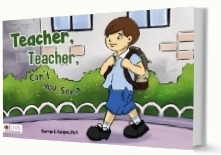WIPE OUT BULLYING: IT IS POSSIBLE
 If we make the effort, we have the power to “wipe out” bullying, but due to recent statistics, and if there is doubt, we can at least think on the lines of decreasing bullying. You may not realize it, but many children either know a bully, know someone who has been bullied, has been bullied, or are a bully bystander (one who knows or observes bullying done to another, but chooses to remain silent and/or does not intervene).
If we make the effort, we have the power to “wipe out” bullying, but due to recent statistics, and if there is doubt, we can at least think on the lines of decreasing bullying. You may not realize it, but many children either know a bully, know someone who has been bullied, has been bullied, or are a bully bystander (one who knows or observes bullying done to another, but chooses to remain silent and/or does not intervene).
Please know how you can help. Here are a few suggestions to consider
If your child is a bystander, talk to your child about “why” he/she chooses this route. Could it be your child fears if he/she speaks up, the bully may turn on them? Can you give your child suggestions of how to intervene without putting him/herself in danger? What about yelling out “Help!” or “Stop!” Your child can also feel free to go for help, or report incidences anonymously.
Talk to your child daily about his/her school day. Ask if there is anything you should know. Help your child identify what is and isn’t bullying.
If you feel your child IS a bully — Ensure your child realizes how hurting others feel. Ask how they’d feel if “the shoe was on the other foot.” Talk to your child about feelings, consideration of others, how to speak kindly to others, how to have empathy for friends and school mates, how to play fair and take turns when at play, or playing a board game. These skills help build positive social skills. Go ahead and role-play with your child. Get as serious as you need to, so they will understand feelings, remorsefulness and care for others.
Recognize the signs of bullying. Your child may not tell you he/she is being bullied for fear of retaliation from the bully, or they may be ashamed. Please note a few signs to ponder.
Loss of sleep
Falling grades
Often complaining of stomach aches, or headaches
Loneliness
Complaints of going to school
Going to school very early/late with intent to avoid the bully
Personal belongings missing, but they have said they lost it (the Bully actually took it)
Knowing the signs of bullying can help you intervene sooner.
School yourself on the universal definition of bullying, and ensure your child knows what bullying is and isn’t. Some children may believe what they are experiencing is not bullying, but a part of childhood endurance. This is farther from the truth. There is a difference between bullying and “horse playing” with a friend.
Bullying is defined: Use of physical force, verbal threat or coercion to abuse, intimidate, or aggressively
dominate others. The behavior is usually intentional, repeated and habitual.
Have a meeting of the minds with your family. Create rules. Inform your child you are their voice and best advocate against bullying. Ensure your child realizes you will “drop whatever you’re doing” to intervene. Be sure your children realize you are “all ears.” Your plan is to talk with and listen to them daily.
Are you an example and positive influence? Please don’t go through all these steps in vain. Your children should realize you are sincere, and they should always observe you as a non-bully as well.
I hope these tips help. Please let me know should you have questions I can answer about bullying and the prevention of bullying.
Cherrye S. Vasquez's Blog
- Cherrye S. Vasquez's profile
- 37 followers



